
Myanmar Pipeline Brings Gas to China, Hardship to Villagers
This photo essay is the fifth installment in NRGI's 2015 extractive industries photo documentary project, which aims to capture the complex political, environmental and social realities at resource extraction sites throughout Myanmar.
"Welcome to Ma-De Island," said the boatman, pointing toward a gray shape barely visible through the rain. A ferry ride to the island had taken two hours from the city of Kyauk Phyu in Myanmar's Rakhine state. Before arriving, I had imagined finding a pleasant community with new infrastructure where villagers had transitioned from agriculture to industrial jobs. But my expectations were quickly countered by less rosy realities.
Ma-De Island and the surrounding area serves as the coastal hub for two pipelines which channel oil and gas produced off Myanmar's coast to western China. A joint venture between the China National Petroleum Corporation (CNPC) and Myanma Oil and Gas Enterprise (MOGE), the crude oil pipeline originating at the operation center on Ma-De Island traverses much of western and northern Myanmar before crossing into China's Yunnan province. A parallel natural gas pipeline links China to Myanmar's Shwe gas field, which is controlled by a consortium including MOGE, Daewoo International, ONGC Videsh, KOGAS and GAIL.
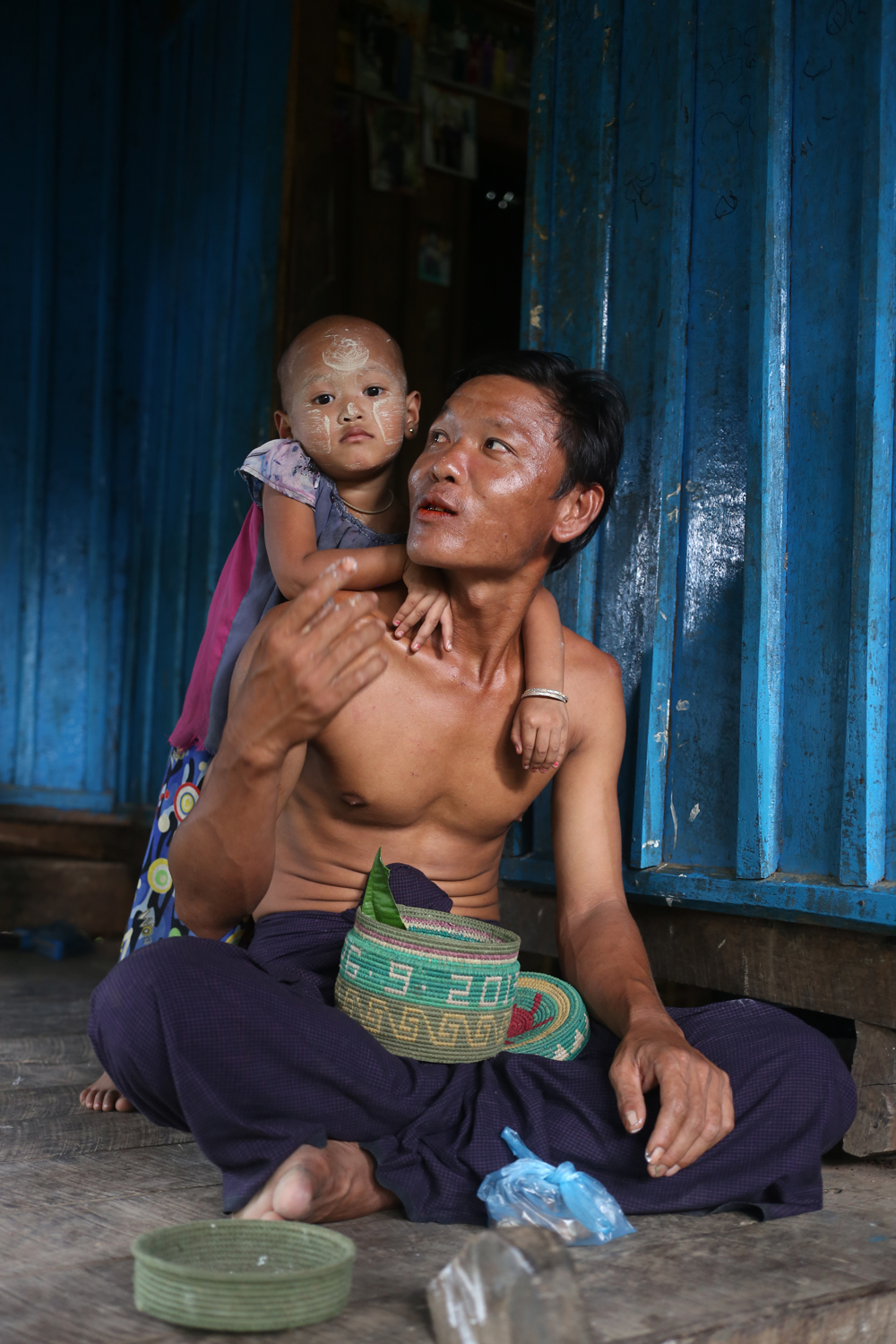
Ko Phyu Thee, pictured with his daughter, protested the Shwe oil and gas pipelines in September 2013. He and nine others from Ma-De Island were arrested and charged with protesting without permission. Ko Phyu Thee was imprisoned for three months with hard labor. Photo by Yu Yu Myint Than for NRGI
After disembarking through the muddy ferry gate, I asked the people nearby if there was a motorcycle taxi to Ywar Ma village. "No," he locals told me, "the roads are all gone and no motorcycle can pass. You have no choice but to get there on foot." With the help of one villager, I set out down the slippery mud road toward Ywar Ma village with my heavy backpack. We couldn't walk properly. Along the way I saw students coming back from school barefoot, carrying their slippers to avoid the mud.
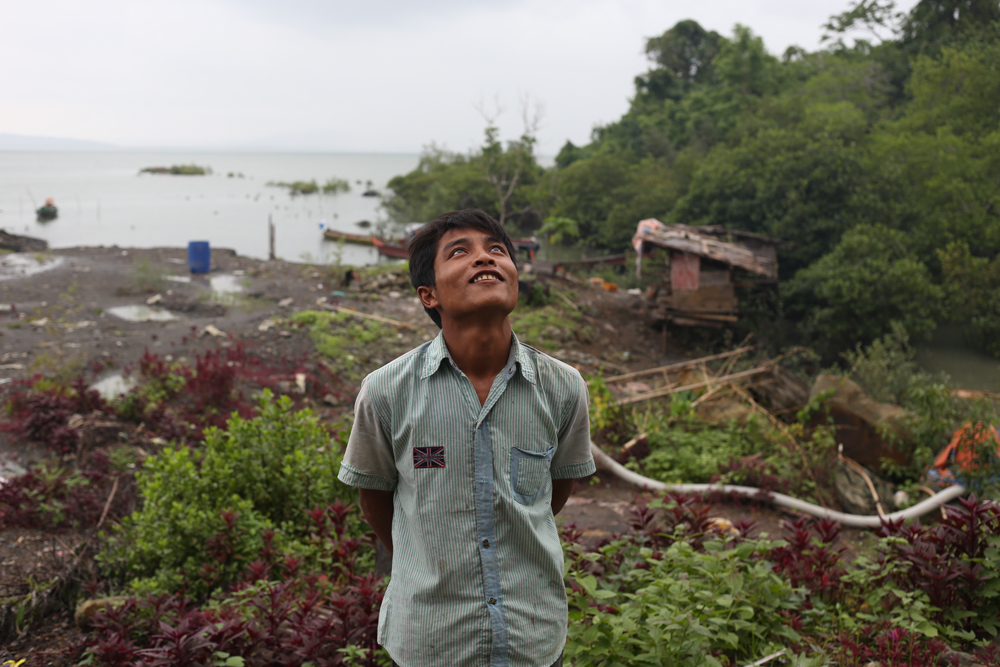
Chat Kyi and his brother are the only two workers contracted from Ma-De Island. Chat Kyi works as security guard at night shift and does finishing in day time. He said that he knew nothing about the contract’s contents when he signed on and that he remains unclear on its terms and his rights. Photo by Yu Yu Myint Than for NRGI
Despite its location at the juncture of major oil and gas pipelines, Ma-De island only has access to electricity from 6:00 p.m. to 10:30 p.m. When the clock struck six in the evening, almost everyone disappeared to charge their phones, torches and power banks, or to iron clothes and watch TV. Ko Phyu Thee, an islander living in Ywar Ma village, asked me, "Where is the 24-hour electricity? Where are the good roads? They just gave us false hope."
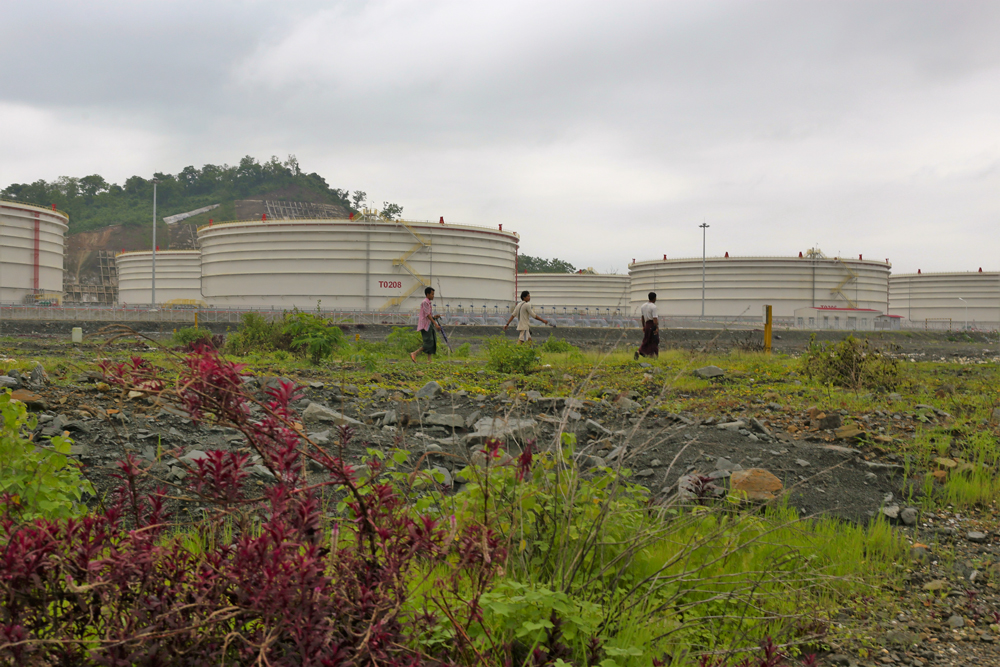
Villagers pass in front of crude oil tanks at Ma-De Island. Lands confiscated in order to develop the facilities included plots used to cultivate crops and to collect firewood. Photo by Yu Yu Myint Than for NRGI
Ma-De Island used to be famous for its agriculture, as well as the best firewood around Kyauk Phyu. My boatman, Man Ko Sit Naing, told me: "In the olden days, there were lots of passengers from Ma-De Island travelling to sell their crops in Kyauk Phyu, and some from Kyauk Phyu came and bought from the Island. I have had fewer customers since the pipeline project started because the farming business is not as good as it was before. Everyone in Kyauk Phyu used to wait for the vegetables from Ma-De Island, but now there are only a few gardeners left on Ma-De Island."
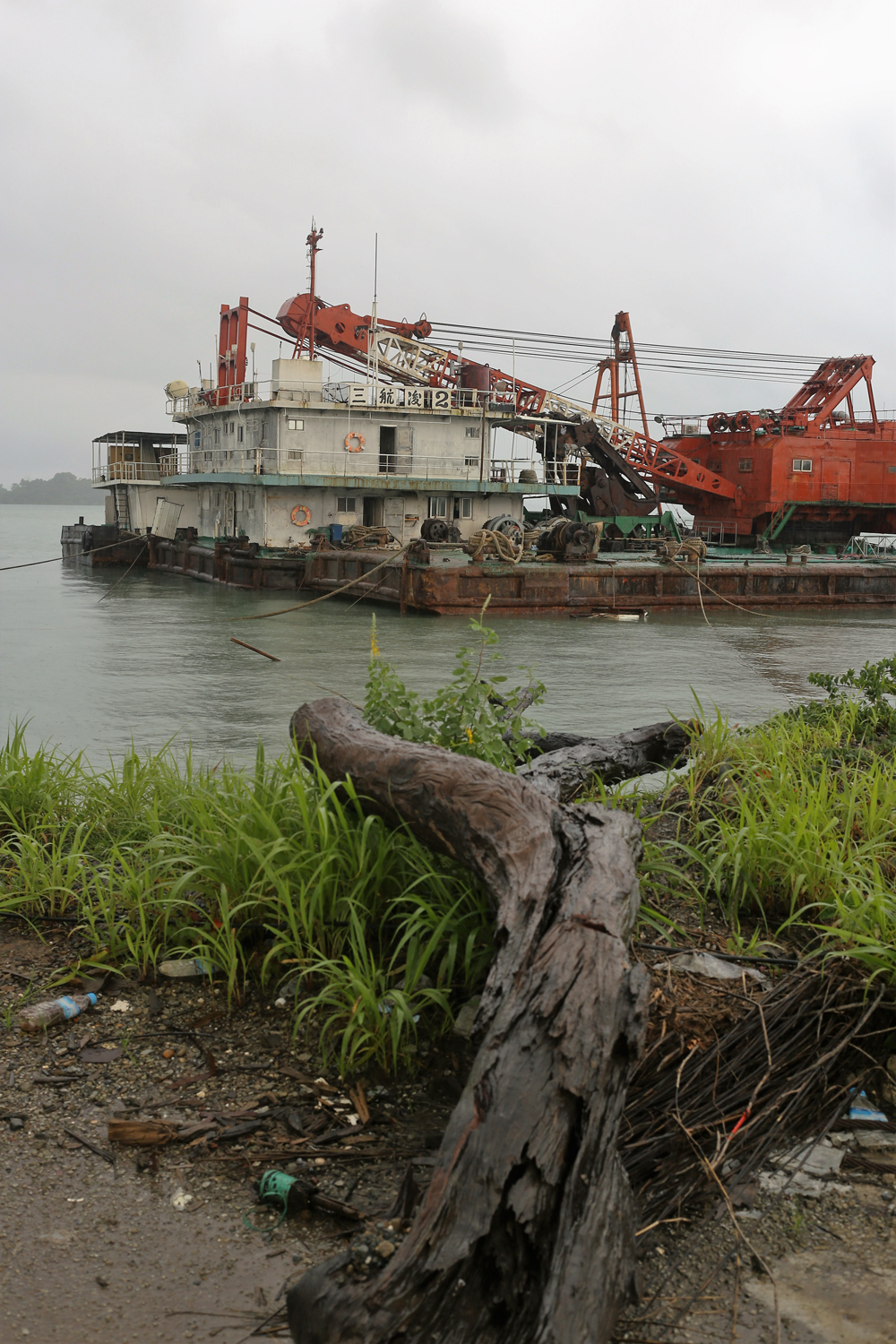
A ship moored at the jetty of Ma-De Island. Photo by Yu Yu Myint Than for NRGI
Most of the islanders were impacted by land confiscation for the pipeline project, which began in 2009 under Myanmar's military government. Fearful of oppression by the junta, most didn't express objections and accepted whatever compensation they were given. Ma-De resident U Tun Maung Nu told me, "How could we say no? How bitter I felt to see they destroyed our own farmland with bulldozers!"
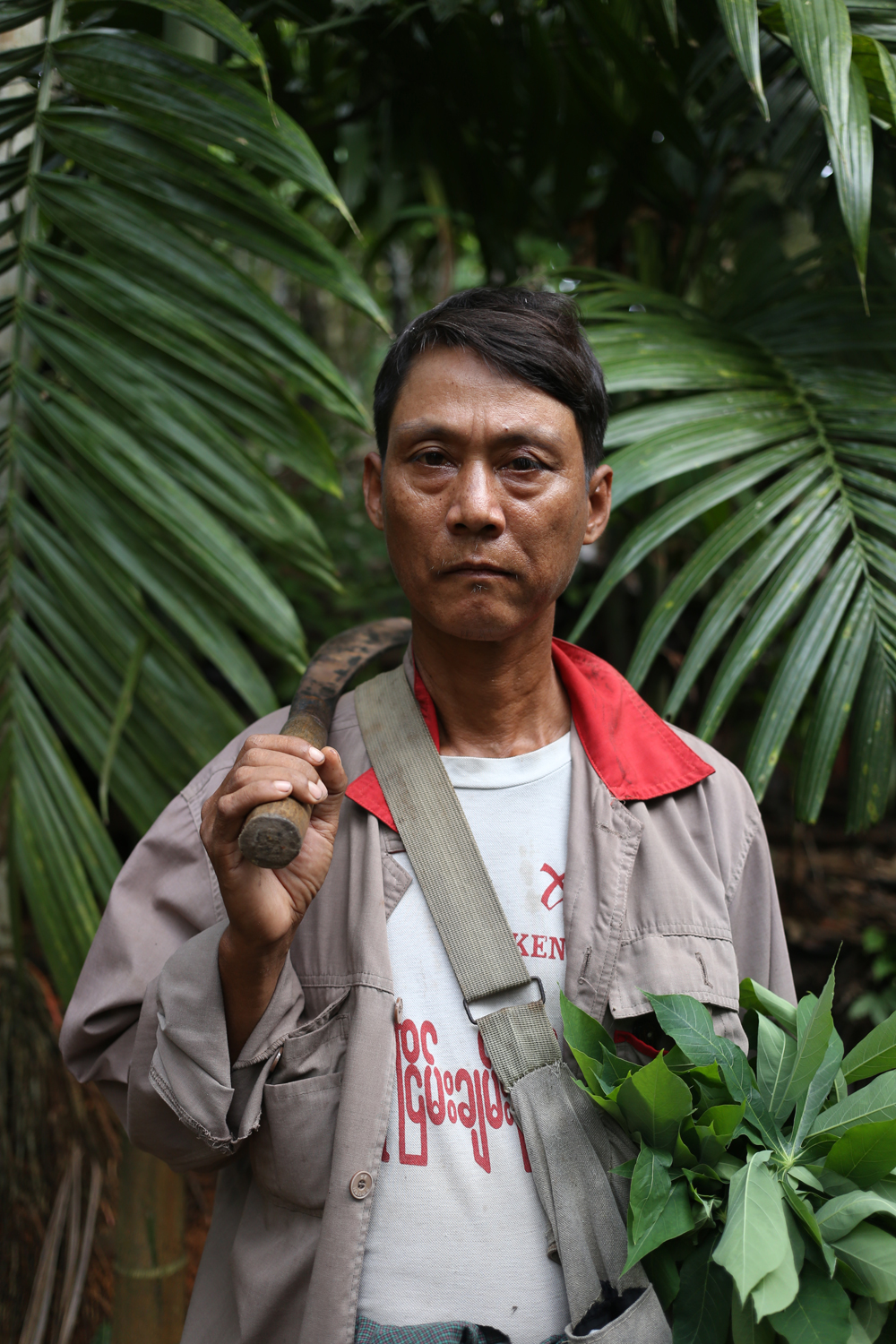
U Tun Khin Nu lost his farming land as well as four additional acres where he grew firewood to gas pipeline development. He participated in a pipeline protest in 2013 and was arrested and sentenced to three months of hard labor. Photo by Yu Yu Myint Than for NRGI
Many villagers still feel unfairly treated; only lands under cultivation were paid for, while plots used for firewood were regarded as "vacant." On Ma-De Island, a total of 114 acres belonging to 30 farmers was reportedly seized without compensation.
Today, many former farmers lack the skills to earn a living outside of agriculture. During my stay, I saw middle-aged men and young people at home, passing the time by playing cards throughout the day.
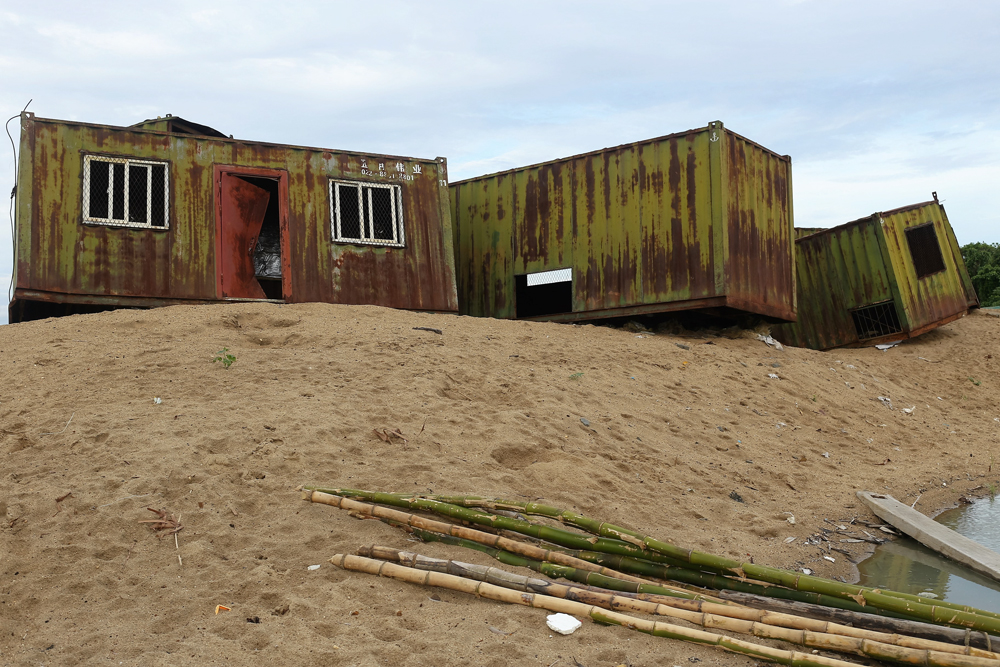
The containers left by a company subcontracted to construct the pipeline Operation Center on Ma-De Island. Photo by Yu Yu Myint Than for NRGI
"They promised us that they would give job opportunities, especially to the people who lost their land," Thar Zar Gyi from Ywar Ma village said. "Yes, I got some temporary jobs, like painting and carrying bricks during the construction period. But now I am jobless. No supervisor asks me to come and work now."
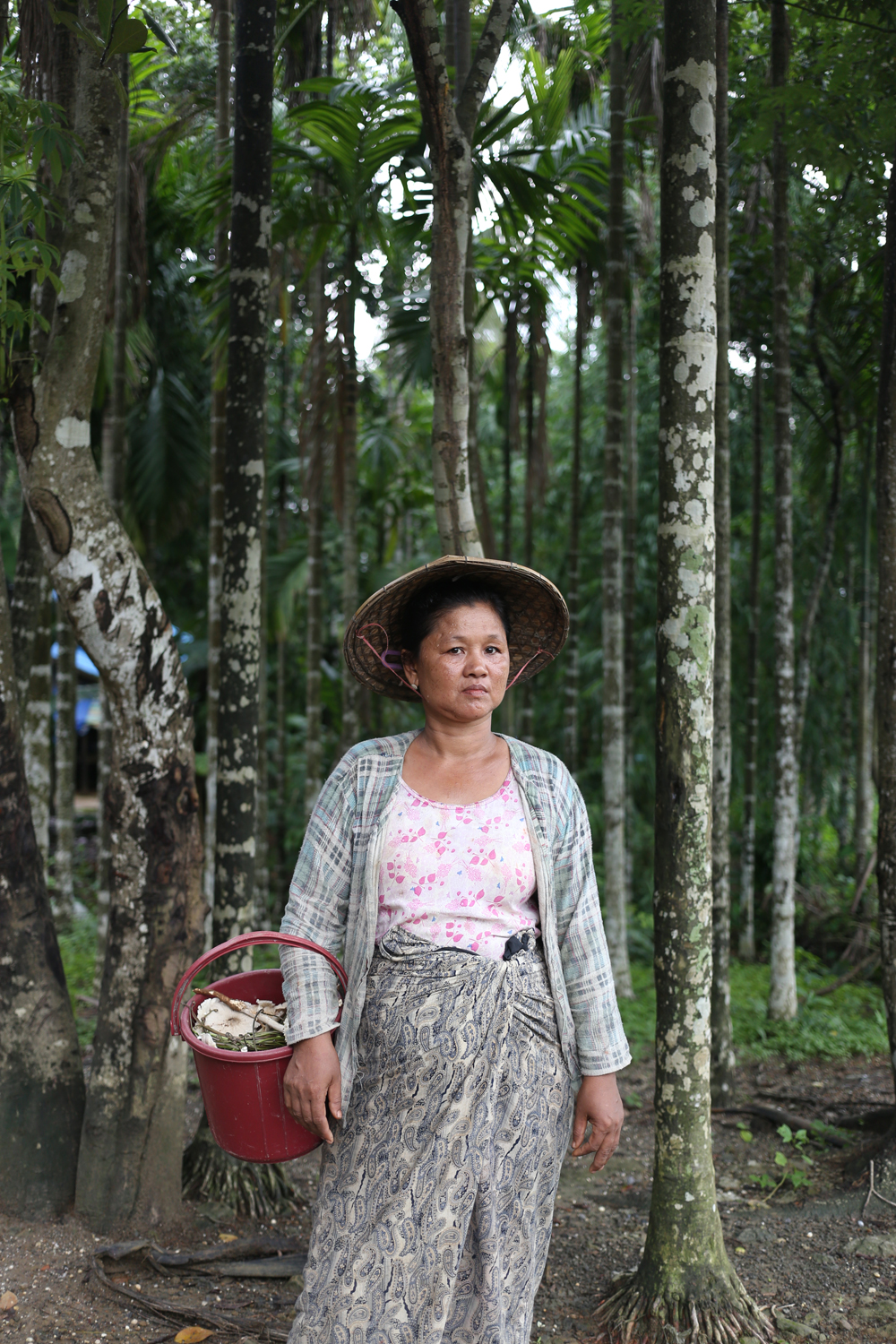
Daw Aung Than Wai lost nearly four acres of land where she had grown firewood for 18 years. She received no compensation for the lands, which were regarded as “vacant” by the government. Photo by Yu Yu Myint Than for NRGI
"I agree with their point that we need skills," he added. "So why don't they support training? It's alright for middle-aged people and older people like me. But they should give training to the young people. My son is jobless now and he is 22. We don't have any farming land left or enough money to buy lands to work."
Those who still have land are trying to live on as farmers, but they remember a better past. U Aung from Ywar Ma village told me, "Before, we didn't need to worry about next year once we finished harvesting this year. Now most of us have to worry for the next day. Who will give us rice for free?"
Fortunes may be changing for some residents. CNPC and MOGE recently promised to provide compensation for the more than 100 acres of "vacant" land seized. The price struck between the company and local civil society group is reportedly 10 lakh kyats per acre (or approximately $785 per acre).
Still, it remains to be seen whether companies will uphold the bargain – or whether these latest promises will fail to materialize. As resident Daw Hla Thein Ye put it, "They've always promised us many things since the start. I can only relax when their promise comes true."
Yu Yu Myint Than Is a freelance Burmese photojournalist based in Yangon.
The views expressed here are the author's own, and do not represent NRGI. NRGI does not guarantee the accuracy, completeness and validity of any statements made within this article. NRGI accepts no liability for any errors, omissions or representations.
